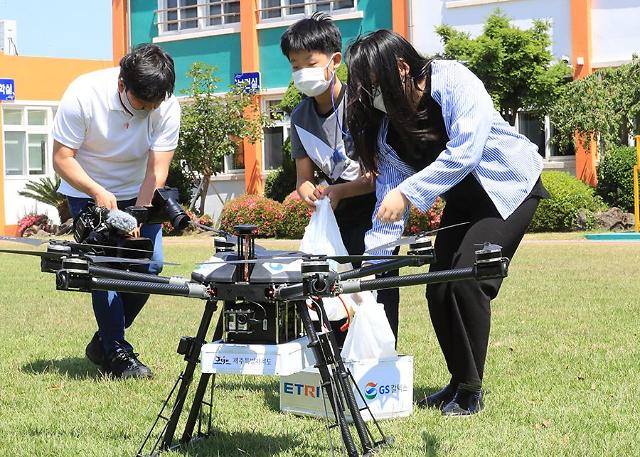
Students receive lunchboxes delivered by a drone at an elementary school in Jeju on June 9. [Yonhap Photo]
Trade, Industry and Energy Minister Sung Yun-mo presented policy directions to establish a foundation for big data of distribution information, expand high-tech logistics infrastructure and demonstrate the commercialization of innovative services using robots and drones.
"Since the outbreak of COVID-19, online distribution has emerged as a key industry in the non-face-to-face economy. We will expand our distribution infrastructure," Sung said at a logistics center in Seoul. He said the government will first establish big data distribution information that manufacturers, distributors and information technology service developers can jointly use.
The government is currently updating big data about product barcodes and machine-readable codes that contain information about manufacturers, appearance and ingredients. About four million bar code data will be updated by 2020. Product barcode data can be used in various businesses such as a smartphone app service that shows types of allergen included in a food product.
Sung said that the government would help online shopping malls nest inside industrial complexes. Previously, online shopping-related businesses had not been allowed to operate factories or logistics centers inside industrial zones which provide tax and other benefits..
The operation of drones in populated urban areas is strictly regulated due to safety and privacy. The government will reorganize regulations and laws related to the operation of delivery robots and drones for the early commercialization of logistics services using unmanned devices.
The postal service has tested delivering small parcels to small islands. GS Caltex, a major refiner, will utilize a nationwide network of gas stations as the hub of local logistics systems including drone delivery, car-sharing parcel, delivery services by vehicles and hydrogen fuel and electricity charging services.
Copyright ⓒ Aju Press All rights reserved.





View more comments